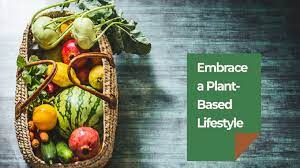1. Plan Your Meals Ahead
Before you head to the store, take some time to plan your meals for the week. This not only saves you time but also ensures you get all the necessary nutrients. Look for vegan-friendly recipes and create a grocery list based on those meals. By sticking to your list, you’ll avoid impulse buys and make your trip more efficient.
2. Buy Whole Foods
When shopping vegan, it’s best to focus on whole foods like fruits, vegetables, grains, legumes, nuts, and seeds. These foods are rich in nutrients and provide a balanced diet. Whole foods are not only healthier but are often more affordable than processed vegan products, which can sometimes be expensive.
3. Read Labels Carefully
Not every product labeled “plant-based” is vegan. Many processed foods can contain hidden animal-derived ingredients like gelatin, casein, or honey. Make it a habit to read labels and look for certification like “Vegan” or symbols such as the “V” sign to ensure the product is free from animal products.
4. Explore Your Local Farmers’ Markets
Farmers’ markets are great places to find fresh, organic produce, and often at lower prices than supermarkets. You can also ask the vendors about their farming practices to ensure you’re getting the best quality. Supporting local farmers is a bonus, as it helps promote sustainable practices.
5. Stock Up on Vegan Staples
Always keep your pantry stocked with vegan staples like beans, lentils, quinoa, rice, oats, and pasta. These items are versatile, nutritious, and have a long shelf life. They’re perfect for building meals like soups, salads, and stir-fries.
6. Don’t Forget About Protein
One concern many new vegans have is getting enough protein. Fortunately, plenty of plant-based protein sources are available, such as tofu, tempeh, seitan, lentils, chickpeas, and black beans. Incorporating these into your meals will ensure you’re meeting your protein needs.
7. Check Out Frozen Options
Frozen fruits and vegetables are often just as nutritious as fresh ones and can be more affordable. They’re perfect for smoothies, soups, and quick stir-fries. Plus, they won’t spoil as quickly, so you can always have them on hand for busy days.
8. Buy in Bulk
If possible, buy your grains, legumes, and nuts in bulk. Not only will this save you money, but it also cuts down on packaging waste, making it a more eco-friendly option. Many stores now offer bulk sections where you can bring your own containers.
9. Look for Vegan Coupons and Discounts
Many vegan brands offer coupons or have regular discounts at specific stores. Signing up for newsletters or following your favorite vegan brands on social media can help you find deals on your favorite products. You can also check out discount grocery stores for bargains on vegan items.
10. Don’t Rely on Processed Vegan Foods
While it’s tempting to load up on vegan snacks and meat substitutes, these can often be highly processed and not the healthiest option. It’s fine to indulge occasionally, but try to base your diet on whole, unprocessed foods for the best health benefits.
Read more about Vegan food on a budget…
Final Thoughts
Vegan food shopping doesn’t have to be challenging. With these tips in mind, you’ll be able to shop confidently and create delicious, nutritious meals that align with your values.
Whether you’re a seasoned vegan or just starting, smart shopping can help you maintain a healthy, plant-based lifestyle.

